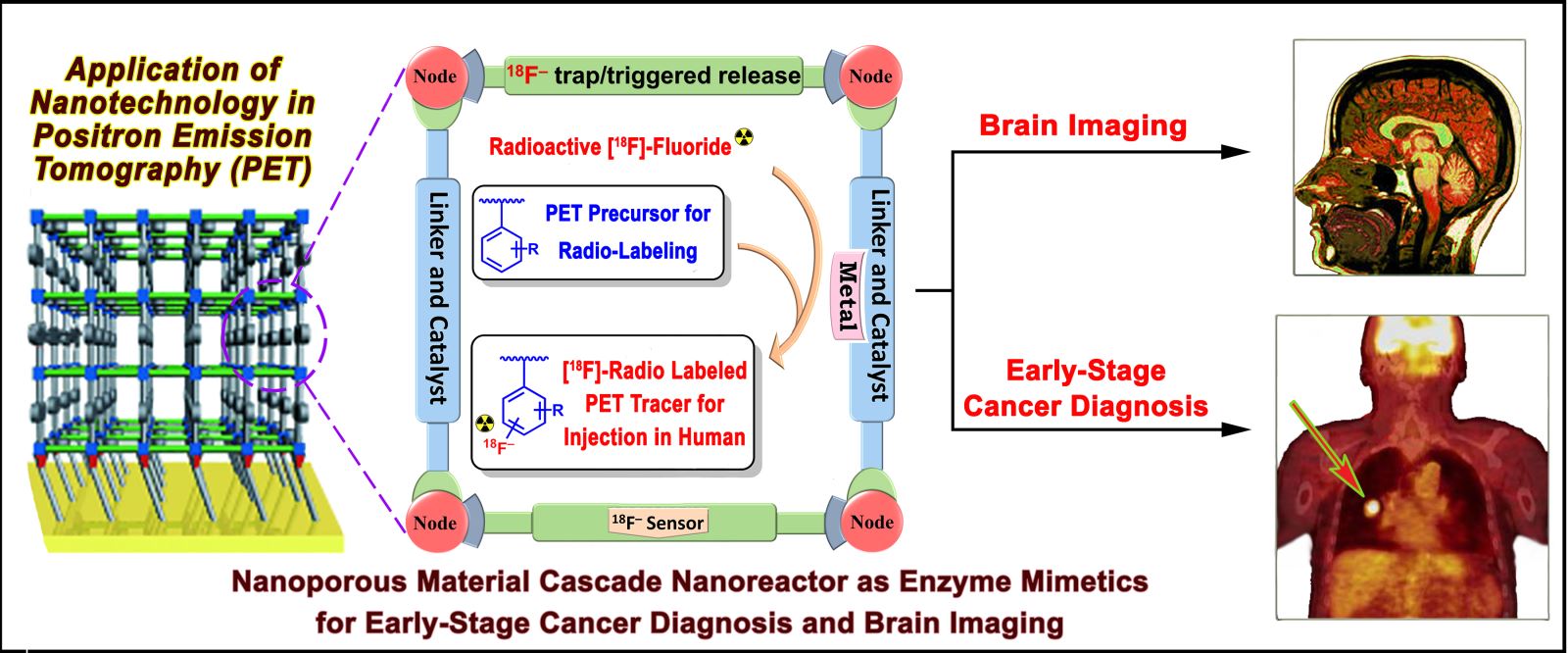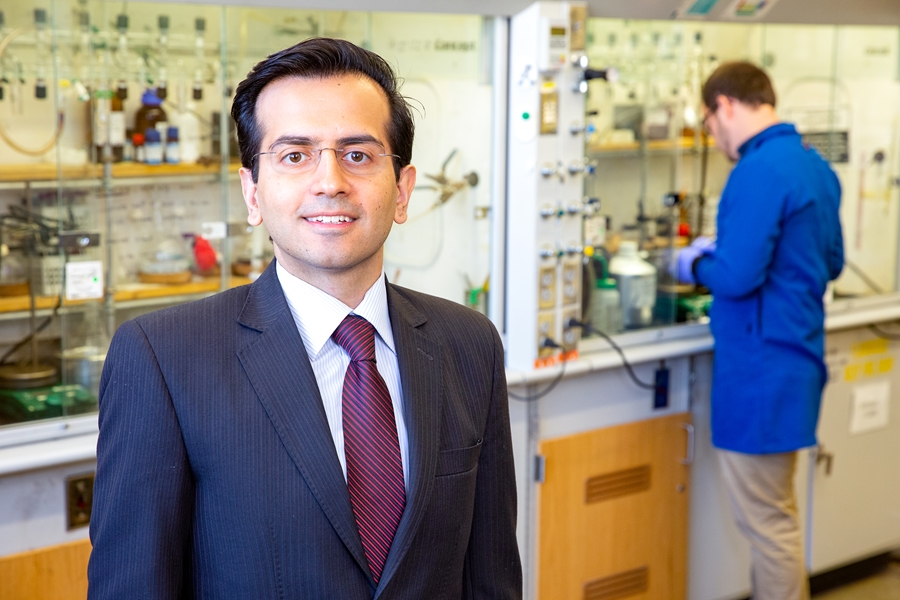New Approach to Cancer Diagnosis Receives NIH Funding
FAYETTEVILLE, Ark. – A chemist at the University of Arkansas has received a grant from the National Institutes of Health to advance development of porous nanoreactors to improve the speed and accuracy of early cancer detection through positron-emission tomography, commonly known as PET imaging.
The $428,285 grant to Hudson Beyzavi, assistant professor of chemistry, supports his work to improve the effectiveness of the noninvasive biomedical imaging method. PET imaging is used in the diagnosis and treatment of cancer and other diseases.
“Cancer is the second most common cause of death in the United States,” Beyzavi said. “However, the mortality rate can be often greatly reduced by early diagnosis and therapy.”
 This diagram shows Beyzavi’s design for a nanoreactor containing catalysts that can perform the necessary chemical reactions to prepare tracer molecules for use in PET scanning.
This diagram shows Beyzavi’s design for a nanoreactor containing catalysts that can perform the necessary chemical reactions to prepare tracer molecules for use in PET scanning.
His research is focused on improving the accuracy of PET scans, through development of nanoreactors that bind radioactive isotopes to tumor cells more effectively than current methods.
PET uses fluorine-18, a radioactive isotope, to detect tumor cells. The fluorine-18 must be added to specially designed molecules called tracers that are injected into the body to bind with tumor cell receptors. The PET scans pick up the radiation from the tracers that have become bound to cancer cells.
However, the molecule currently used as a tracer — fluoro-deoxyglucose — can travel to other parts of the body beyond the cancer cells. This can make it difficult for oncologists to distinguish between the tracers that have attached to tumor cells and those that show up in cancer-free areas. “The smaller the tumor is, the more difficult it is to identify it using this method,” explained Beyzavi. “Improving this approach could have an impact on early cancer detection.”
New tracer molecules that selectively bind to cancer cells, but not healthy cells, have been developed; however, they currently are slow to bind with fluorine-18, and the isotope must be used quickly because of its short radioactive half-life. Tracers must be synthesized and then transported to the location of the PET scanner with enough radiation left to be effective, so the fluorination process must happen quickly.
Beyzavi’s porous nanoreactor would solve these challenges. It would be comprised of thin films of a nanoporous material. The channels in the material contain catalysts, and as the fluorine-18 and tracer molecules move through the channels, the catalysts could perform the chemical reactions necessary to bind the fluoride-18 to the tracer molecules, significantly faster than the current methods.
About the J. William Fulbright College of Arts and Sciences: Fulbright College is the largest and most academically diverse unit on campus with three schools, 16 departments and 43 academic programs and research centers. The college provides the core curriculum for all University of Arkansas students and is named for J. William Fulbright, former university president and longtime U.S. senator.
About the University of Arkansas: The University of Arkansas provides an internationally competitive education for undergraduate and graduate students in more than 200 academic programs. The university contributes new knowledge, economic development, basic and applied research, and creative activity while also providing service to academic and professional disciplines. The Carnegie Foundation classifies the University of Arkansas among fewer than 2.7 percent of universities in America that have the highest level of research activity. U.S. News & World Report ranks the University of Arkansas among its top American public research universities. Founded in 1871, the University of Arkansas comprises 10 colleges and schools and maintains a low student-to-faculty ratio that promotes personal attention and close mentoring.
Contacts
Hudson Beyzavi, assistant professor of chemistry
Fulbright College of Arts and Sciences
479-575-2083, beyzavi@uark.edu
Camilla Shumaker, director of science and research communications
University Relations
479-575-7422,
camillas@uark.edu
